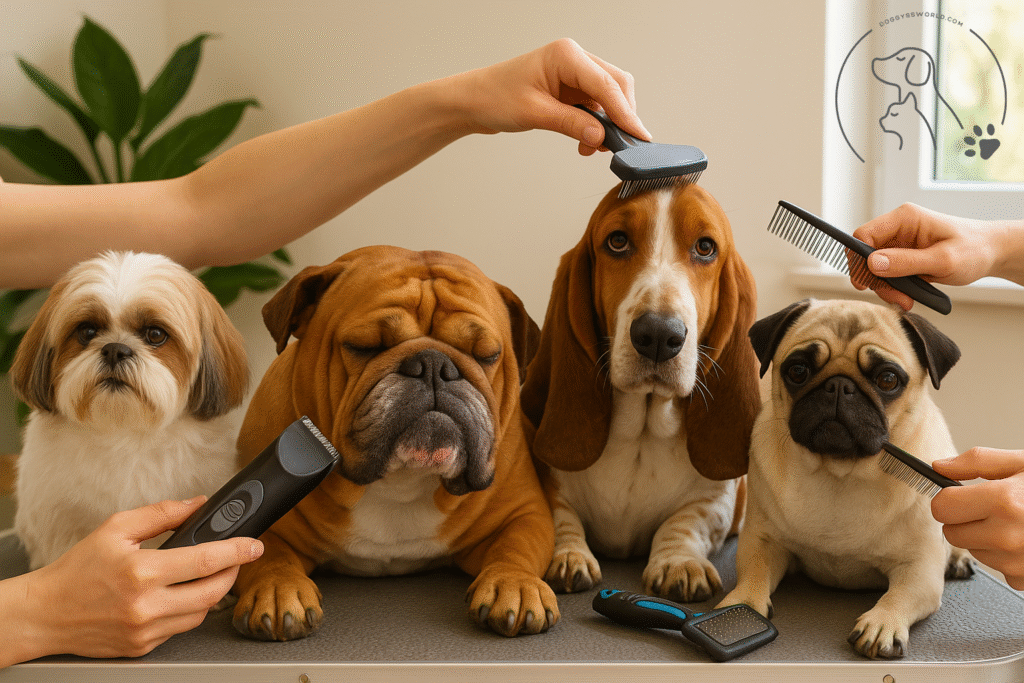🐾 How to Find the Right Dog for Your Lifestyle
Adopting a dog into your life is one of the most joyful choices you can make — but it can also be a lifelong one that comes with a lot of responsibility. With hundreds of different dog breeds, these days, making the right choice from the start can make the difference between an easy, mutually fulfilling relationship and daily frustration – even heartbreak.
Before you fall in love with the floppy ears and sweet eyes (or the Instagram-famous Husky), take some time to think about what you can realistically provide to a dog, and what might slot easily into your life.
🏡 Consider Your Living Situation
Apartment Living: Small, less active dogs such as French Bulldogs or Cavalier King Charles Spaniels can do well in an apartment setting. They may do okay in an apartment if they are adequately exercised.
Home with Yard: Active breeds such as Border Collies, Golden Retrievers or Australian Shepherds will thrive with space to run and play.
City or Country: Dogs who have developed a lot of sounds sensitivity might have some difficulty in the city, but those who are comfortable meeting new people and being outside might love city walks.

🐕 Evaluate Your Activity Level
Do you jolt out of bed for an early morning run or are you the type who would rather curl up on the couch?
Active Owners: Dogs like Labrador Retrievers, German Shepherds, Vizslas and more will love running with you and joining you on your outdoor quests.
Couch Potatoes: Bulldogs, Basset Hounds or Shih Tzus are just fine with short walks and a whole lot of TV time.
Just keep in mind that high-energy dogs, if you don’t provide them with a physical release for their energy, can become a big problem, and low-energy dogs can get fat and lazy if you over-coddle them.
🧹 Think About Grooming Needs
Grooming levels vary according to breed.
High Maintenance: Poodles, Shih Tzus, and Afghan Hounds will need frequent grooming and professional haircuts.
Low Maintenance: Breeds that include Beagles, Boxers, and those with short hair need to be brushed out less often, and can be bathed less frequently.
Allergies: If you have allergies, you may find relief in a hypoallergenic breed, such as the Poodle or Bichon Frise.
🧠 Assess Temperament and Personality
Every breed has a basic temperament, but every dog is an individual.
Family-Friendly: Golden Retrievers, Labradors, and Beagles are a patient with an affinity for children.
Guard: German Shepherds and Doberman Pinschers are good for the purpose of guarding persons.
Independent: Some breeds, such as Basenjis, are more independent and less clingy, while other breeds, like Chihuahuas, are famous minglers to one person.
💡 Consider Your Time Commitment
Dogs require time, and attention, and training.
Puppies need patience and ongoing training.
Some breeds also require more mental stimulation (puzzle toys, learning commands) to stave off boredom.
On the go professionals may want to opt for breeds that are less dependent or for older dogs that have already been trained.
🐶 Adoption vs. Breeder
Adoption: Lots of shelters have purebred and mixed-breed dogs in need of good homes. Mixed breeds frequently enjoy the best of both or multiple breeds and are perfect for all kinds of families.
Responsible Breeders: If you decide to purchase a purebred, find a breeder who values health and temperament over a quick buck.
✨ Final Thoughts
The right dog is as much about canines as it is about understanding yourself. Assess your lifestyle, energy levels, and what you can provide to get the dog that will naturally be a part of your life.
For when it’s all said and done, this isn’t just a matter of finding a dog. This is about finding a best friend.
🐾 Interested in Dog Breeds?
For in-depth breed guides, training tools, and how-to’s for raising a happy, healthy dog, head to Doggy’s World and begin your search for your perfect match now.